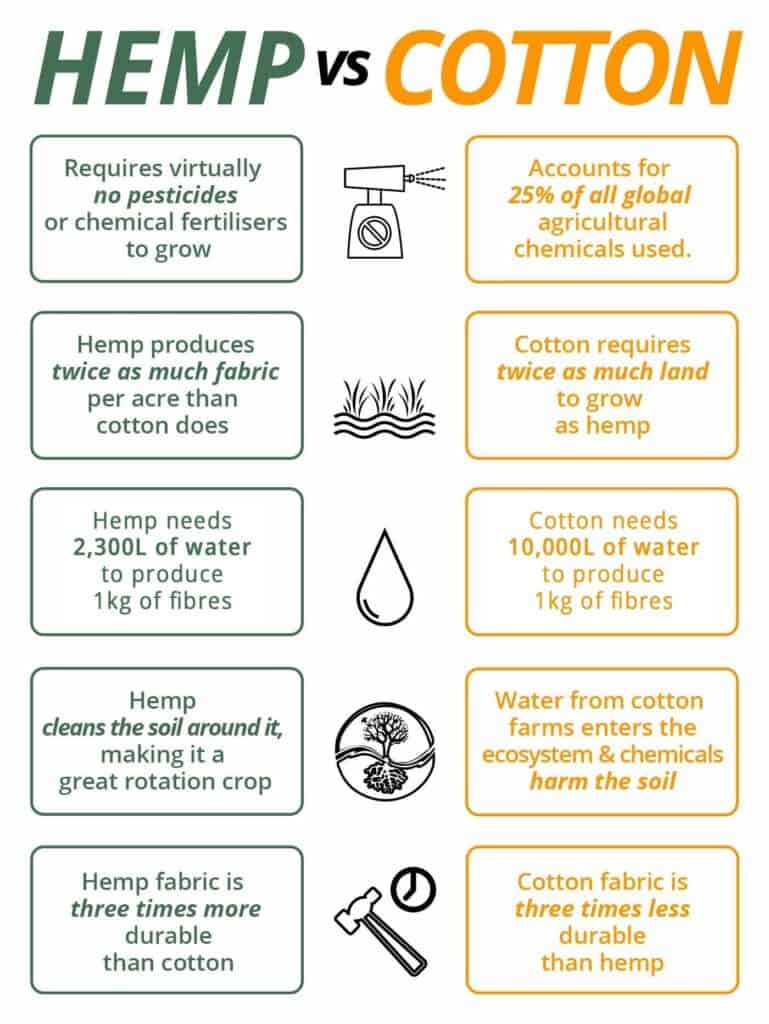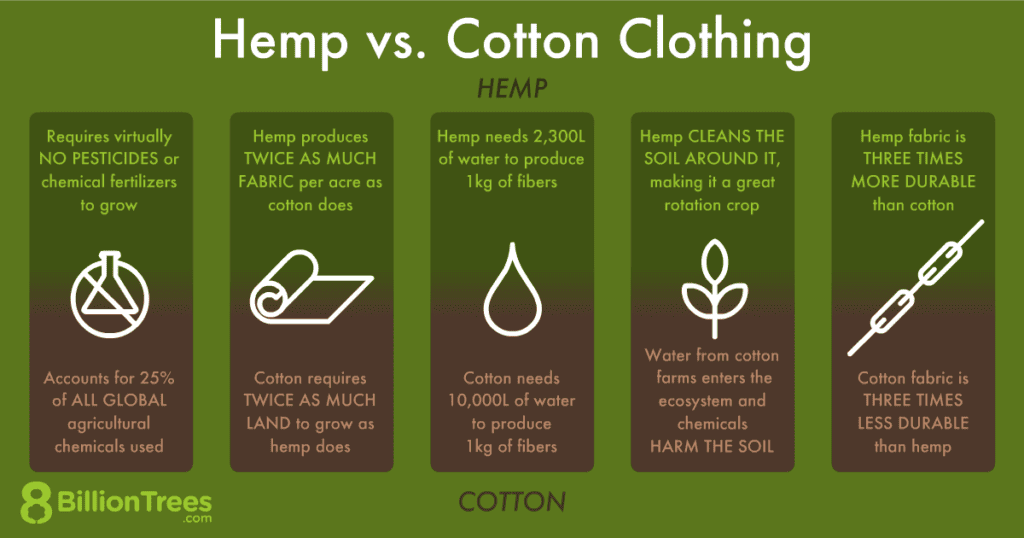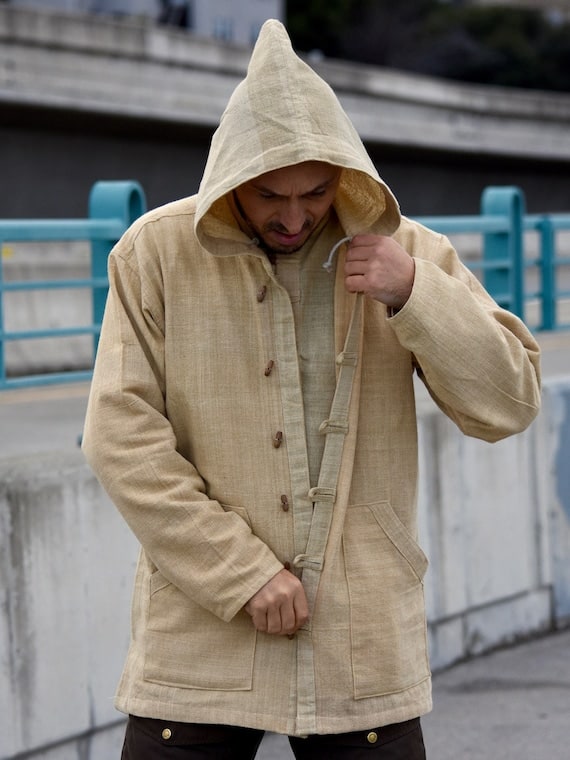In this article, you’ll learn about why hemp clothing is a better choice than cotton. Hemp fabric has a rich history and was widely used before facing unjust demonization in the early 20th century. Today, hemp fabric is recognized for its strength, requiring less water and fewer pesticides to grow compared to cotton. It’s similar to linen in its benefits, such as moisture-wicking properties and abrasion resistance. While it used to be scratchy and wrinkle-prone, modern treatments and blends have made hemp fabric softer and more comfortable to wear.
When it comes to choosing hemp clothing, there are a variety of options available for men. Some recommended items include the Pistol Lake All Day Hemp Tees, which provide a comfortable and sustainable option, and the Outerknown Sur Snap Hoodie, perfect for cooler weather. For shorts, Taylor Stitch’s Apres Shorts are a great choice. Don’t forget about accessories! The Stetson Stratoliner Hemp Hat offers style and sun protection, while Anonymousism Grow Hemp Socks provide a durable and eco-friendly option. With the numerous benefits of hemp fabric, it’s clear why it is becoming a popular alternative to cotton in the fashion industry.
Why Hemp Clothing is Better than Cotton?
I have always been curious about the different types of fabrics used in clothing and their impact on the environment. Recently, I came across hemp fabric and discovered that it offers numerous benefits over traditional cotton fabric. As someone who values sustainability and durability, I believe that hemp clothing is a great alternative to cotton. In this article, I will explore the advantages of hemp fabric, compare it to cotton, delve into its characteristics, and discuss the history and modern treatments of hemp clothing.
Benefits of Hemp Clothing
One of the most notable advantages of hemp fabric is its incredible strength. Hemp fabric is four times stronger than cotton, making it highly durable and long-lasting. This means that hemp clothing can withstand regular wear and tear better than cotton garments. As a result, hemp clothing tends to have a longer lifespan, reducing the need for frequent replacements and ultimately contributing to a more sustainable wardrobe.
Additionally, hemp fabric requires less water and fewer fertilizers and pesticides to grow compared to cotton. Cotton farming is notorious for its heavy water consumption and heavy reliance on synthetic chemicals. In contrast, hemp is a more sustainable crop that can be grown with minimal water and without the use of harmful chemicals. By choosing hemp clothing, we can significantly reduce the environmental impact associated with cotton production.
Moreover, hemp fabric possesses unique properties that make it ideal for clothing. Hemp has excellent abrasion resistance, meaning it can withstand rubbing and friction without wearing out quickly. It is also naturally moisture-wicking, which helps to keep the body cool and dry by absorbing and evaporating moisture. These properties make hemp clothing especially comfortable and suitable for outdoor activities and sportswear.
Comparison with Cotton
While hemp fabric offers numerous benefits, it is important to compare it with cotton to understand its advantages fully. When it comes to organic cotton, many argue that it is a softer and stretchier fabric compared to hemp. Cotton has been a staple in the textile industry for centuries, and its softness and breathability have made it a popular choice for clothing. However, organic cotton is still resource-intensive to grow and lacks the sustainability and durability of hemp fabric.
It is worth noting that hemp fabric is more expensive than cotton. This can be attributed to the restrictions and limited supply chain associated with hemp production. Despite the higher cost, choosing hemp clothing is an investment in sustainable fashion that contributes to a more environmentally friendly and ethical industry.
Comparison Chart:

This image is property of www.thehempshop.co.uk.
Characteristics of Hemp Fabric
Hemp fabric is derived from the stem of the Cannabis sativa plant, a cousin of marijuana. It is crucial to differentiate between hemp and marijuana as they serve different purposes. Hemp fabric does not contain the psychoactive properties found in marijuana; instead, it offers a range of practical benefits in the textile industry.
Hemp fabric is often compared to linen due to its similar characteristics. Like linen, hemp fabric is lightweight, breathable, and has a natural luster. However, hemp fabric can be somewhat scratchy and wrinkle-prone initially. Nevertheless, advancements in modern treatments and blends have significantly improved the softness and feel of hemp clothing. These treatments make hemp fabric more comfortable for everyday wear and eliminate some of the perceived drawbacks.
History of Hemp Clothing
Hemp fabric has a long history that dates back thousands of years. It has been used for various purposes, including clothing, sailcloth, and ropes. In fact, hemp fabric was widely utilized throughout different civilizations before it was unjustly demonized in the early 20th century due to misconceptions about marijuana.
This demonization led to the criminalization of hemp cultivation and manufacturing. However, with the growing awareness of sustainability and the need for eco-friendly alternatives, hemp fabric has gradually regained the recognition it deserves. Today, hemp clothing is reemerging as a sustainable and durable choice in the fashion industry.
This image is property of i.shgcdn.com.
Modern Treatments and Blends
As mentioned earlier, modern treatments and blends have transformed the perception and usability of hemp fabric. Manufacturers have introduced softening techniques and blends with other materials to enhance the comfort and versatility of hemp clothing. These advancements have addressed the initial concerns regarding the scratchiness and wrinkling of hemp fabric, making it more appealing to a wider range of consumers.
Blending hemp with other materials, such as organic cotton, allows designers to create a balance between the durability and sustainability of hemp fabric and the softness and stretch of cotton. This blend not only enhances the overall quality of the fabric but also offers a more comfortable wearing experience for those who prefer a softer feel on their skin.
Supply Chain and Restrictions
While the demand for hemp clothing is increasing, the supply chain remains limited in many regions. This limitation has contributed to the higher cost of hemp fabric compared to other materials, including cotton. However, efforts are being made to expand the cultivation and production of hemp to meet the growing demand in the fashion industry. As the supply chain improves, we can expect the prices of hemp clothing to become more competitive.
Furthermore, legal and regulatory restrictions surrounding hemp production vary across countries. In some regions, hemp cultivation is still heavily regulated or even prohibited due to its association with marijuana. These restrictions pose challenges to the widespread adoption of hemp fabric in the fashion industry. However, as more countries recognize the benefits of hemp and revise their legislation, we can anticipate greater accessibility to hemp clothing.
Hemp vs. Cotton Clothing Chart:

This image is property of 8billiontrees.com.
Recommended Hemp Clothing for Men
If you’re interested in incorporating hemp clothing into your wardrobe, here are some recommended options for men:
- Pistol Lake All Day Hemp Tees: These tees offer a comfortable fit and are made from a blend of hemp and organic cotton. They are ideal for casual wear and outdoor activities.
- Outerknown Sur Snap Hoodie: This hoodie is made from a blend of hemp and recycled polyester. It combines style, sustainability, and durability, making it a great addition to any man’s wardrobe.
- Taylor Stitch’s Apres Shorts: These shorts are perfect for those who value comfort and sustainability. Made from hemp and organic cotton, they offer a relaxed fit and are suitable for various outdoor activities.
- Stetson Stratoliner Hemp Hat: This hat combines classic style with the eco-friendly benefits of hemp. It provides sun protection and adds a touch of sophistication to any outfit.
- Anonymousism Grow Hemp Socks: These socks are not only soft and comfortable; they are also made from a blend of hemp and organic cotton. They are a great choice for individuals who prioritize sustainable and durable footwear.
Conclusion
In conclusion, hemp clothing offers numerous benefits over cotton, making it a sustainable and durable choice for fashion-conscious individuals. Hemp fabric’s incredible strength, reduced water and chemical requirements, and unique properties make it a practical and environmentally friendly alternative. Despite the higher cost associated with limited supply chains and regulatory restrictions, advancements in treatments and blends have improved the quality, softness, and comfort of hemp clothing. By choosing hemp clothing, we can contribute to a more sustainable fashion industry and promote the use of eco-friendly materials. So why not embrace hemp clothing and embark on a journey towards a greener wardrobe?

This image is property of i0.wp.com.
Recent Posts
Discover how bubble hash is rated on a 1 to 6 scale. From texture and color to aroma and potency, learn the key factors that determine the quality of bubble hash. Whether you're a seasoned cannabis...
Looking to learn about the most popular style of hash? This article explores the different types, from traditional to bubble hash, and reveals the people's favorite. Join us on a journey through the...

